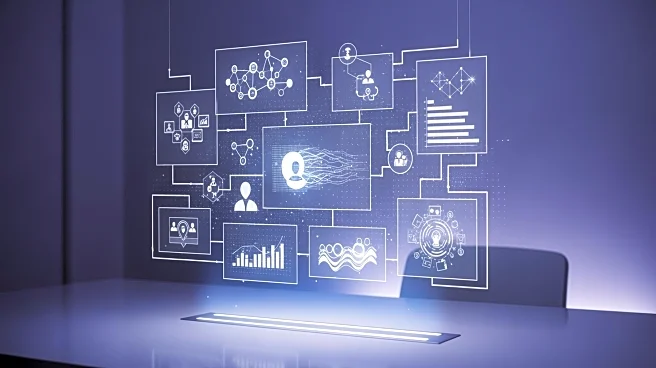What's Happening?
Organizations are increasingly utilizing data-driven learning platforms to personalize training for a multi-generational workforce. These platforms leverage data to create adaptive learning pathways that
cater to the diverse preferences and learning styles of different generations, from Gen Z to Boomers. The use of data allows for the customization of learning experiences, ensuring relevance and engagement across the workforce. Modern learning platforms analyze interactions, feedback, and outcomes to continuously evolve with the learner, fostering a more connected and high-performing workforce.
Why It's Important?
The personalization of learning experiences is crucial in today's diverse workplace, where employees have varying expectations and learning preferences. By tailoring training to individual needs, organizations can enhance employee engagement and performance, leading to better business outcomes. Data-driven learning platforms enable organizations to bridge generational divides, ensuring that all employees can access learning in ways that suit them best. This approach not only improves skill development but also fosters inclusivity and equity in learning opportunities.
What's Next?
Organizations will need to continue investing in data-driven learning platforms to keep pace with the evolving needs of their workforce. This includes refining data analytics capabilities to better understand learner preferences and performance patterns. As personalization becomes more integral to learning strategies, companies will need to focus on creating diverse learning formats that cater to different generational needs. The integration of learning analytics into decision-making processes will be key to optimizing training programs and improving employee engagement.
Beyond the Headlines
The shift towards personalized learning experiences highlights the importance of inclusivity and equity in workforce development. By using data to tailor learning opportunities, organizations can ensure that all employees, regardless of age or background, have access to effective training. This approach also emphasizes the need for a cultural shift towards continuous learning and adaptation, as organizations strive to create environments that support growth and development for all employees.








